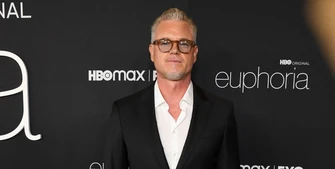Angelina Jolie's children 'endangered' over racial disparities in healthcare
Angelina Jolie has claimed some of her children have had their health "endangered" due to the "prioritisation of white skin" in medicine.

Angelina Jolie has claimed her children's health has been "endangered" due to the "prioritisation of white skin" in medicine.
The 48-year-old actress-and-director - who has Maddox, 21, Pax, 19, Zahara, 18, Shiloh, 17, and 14-year-old twins Knox and Vivienne with ex-husband Brad Pitt - has written an op-ed for the American Journal of Nursing, in which she discussed the new technology that can detect bruises on darker skin colours of domestic violence victims, and she reflected on how so much research and training focuses on Caucasian people, meaning medical professionals “often miss injuries depending on race and ethnicity.”
The 'Maleficent' star wrote: "As the mother of children of multiple races, I have seen my children of color be misdiagnosed, at times in ways that endangered their health...
“Reflecting personally, when my daughter Zahara, who is from Ethiopia, was hospitalised for a medical procedure, the nurse told me to call her ‘if she turns pink near her incisions.'
“I stood looking blankly at her, not sure she understood what was wrong with what she had said.
"When she left the room, I had a talk with my daughter, both of us knowing that we would have to look for signs of infection based on our own knowledge, not what the nurse had said, despite her undoubted good intentions.”
Angelina noted that even though her family has “access to high-quality medical care, simple diagnoses are missed because of race and continued prioritisation of white skin in medicine.”
On a societal level, she added: “From technology to improving diversity and representation in medical research and training, it is past time to embrace new solutions."
The 'Unbroken' filmmaker noted the new technique for detecting bruising is "up to five times more effective at detecting bruising than white light, as much as four weeks after injury,” and hailed it as an important step for protecting survivors of abuse.
She wrote: “Let's be clear: racial bias in forensic evidence collection is only one aspect of much larger societal issues that lead to health care inequities and racially biased health outcomes.
“Many factors contribute to the unacceptable, disproportionate impact of domestic violence on communities of colour in America, and all must be addressed.”







